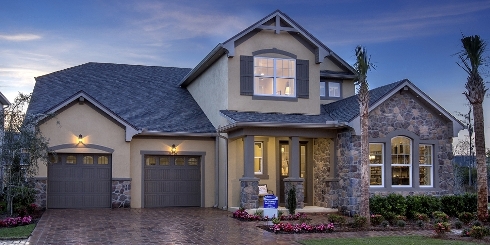For experienced home buyers looking to upgrade, downsize, or relocate within suburban markets, the decision to buy or sell first can be a challenging one. The suburbs often present unique dynamics, such as fluctuating inventory levels, varying demand across neighborhoods, and changing interest rates. This can make timing even more critical.
As seasoned homeowners, you’re already familiar with the basics of the real estate market. However, knowing when to buy or sell can be the key to maximizing your investment and ensuring a smooth transition. In this guide, we’ll explore the pros and cons of both strategies to help you make an informed decision that aligns with your financial goals and lifestyle.
The Pros of Selling Before Buying
Financial Certainty
Selling your current home first gives you a clear picture of your budget. You’ll know exactly how much equity you’ve unlocked, which can be especially beneficial if you’re planning to upgrade or invest in a more expensive property. By having cash on hand, you can make a stronger offer when purchasing your next home, especially in competitive suburban markets where bidding wars are common.
Stronger Buying Position
In many suburban areas, sellers are more inclined to accept offers from buyers who aren't reliant on selling another property. By selling first, you can avoid contingencies related to the sale of your existing home. This can make your offer more attractive to sellers, potentially helping you secure a property faster and at a better price.
Avoiding Dual Mortgages
Managing two mortgages at once can be financially draining, particularly if it takes longer than expected to sell your current home. By selling first, you eliminate the risk of overlapping mortgage payments, easing your financial burden.
Streamlined Moving Process
Selling your home before buying can simplify the moving process. Without the pressure of coordinating two closings simultaneously, you can focus on preparing your current home for sale, getting the best possible price, and then shifting your attention to finding the ideal new property.
The Cons of Selling Before Buying
Temporary Housing Needs
One of the biggest drawbacks of selling first is the potential need for temporary housing. If you don’t find a new home right away, you might have to move into a rental, stay with family, or even consider short-term leasing options. This not only adds extra moving costs but can also be disruptive, particularly if you have kids or pets.
Market Timing Risks
Real estate markets can be unpredictable. Selling first might leave you vulnerable to rising home prices if there’s a sudden shift in the market. This is especially relevant in suburban areas where inventory can be tight, and demand can spike unexpectedly.
Rushed Buying Decisions
Selling your home before purchasing a new one can put you in a time crunch. The pressure to find a new home quickly may lead you to settle for a property that doesn’t fully meet your needs or wish list, potentially resulting in buyer’s remorse.
The Pros of Buying Before Selling
Flexibility and Control
Purchasing a new home before selling your current one allows you to take your time to find the perfect fit without the pressure of an impending sale. You can be more selective and wait for the ideal property in your desired suburban neighborhood.
No Need for Temporary Housing
By buying first, you can move directly from your old home to your new one, avoiding the hassle and expense of temporary accommodations. This can be especially advantageous for families who want to minimize disruptions during the school year or for those who work from home and need stability.
Leveraging Home Equity
If you’ve built significant equity in your current home, you can explore financing options like bridge loans or a home equity line of credit (HELOC) to cover the down payment on your new home. This can give you a financial edge in competitive suburban markets, allowing you to secure a property before your current one sells.
The Cons of Buying Before Selling
Financial Strain
Carrying two mortgages at once can be a significant financial burden. This is especially risky if your current home takes longer to sell than anticipated, potentially leading to cash flow issues or the need to dip into savings or investments.
Market Uncertainty
If your existing home doesn’t sell quickly, especially in a slower suburban market, you could face the challenge of price reductions or extended time on the market, impacting your overall return on investment. Additionally, rising interest rates or changes in market conditions could make your new home purchase more costly than expected.
More Complex Financing
Buying a home before selling your current one may require creative financing solutions. Lenders may have stricter requirements if you’re carrying two mortgages, and you might need to qualify for a higher debt-to-income ratio. This added complexity can delay your buying process and potentially limit your options.
Conclusion
Deciding whether to buy or sell first as an experienced homeowner in the suburbs comes down to weighing the financial, logistical, and emotional factors that matter most to you. If you prioritize financial security and a streamlined process, selling first might be your best bet. On the other hand, if flexibility and control over your next purchase are key, buying first could provide the peace of mind you’re looking for.
Every situation is unique, so it’s essential to consider your personal circumstances, the current market conditions, and your long-term goals. Consulting with a real estate professional can help you navigate these decisions and find the strategy that works best for your needs.

